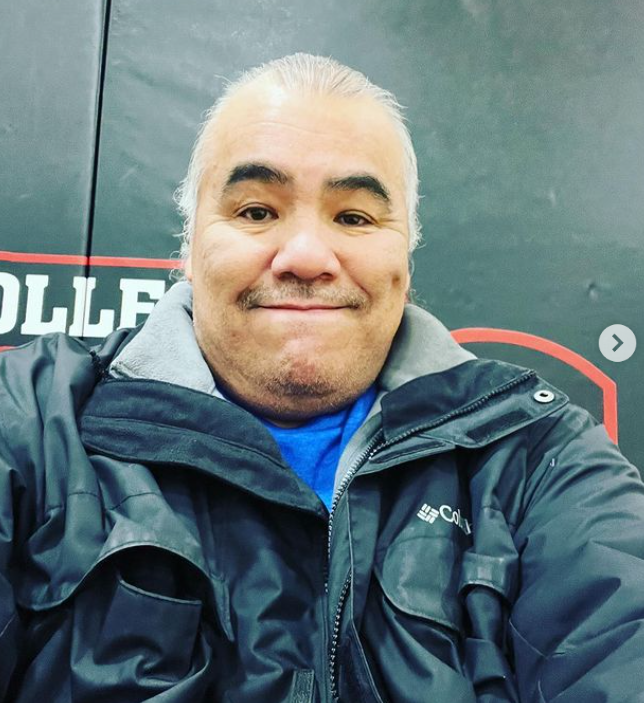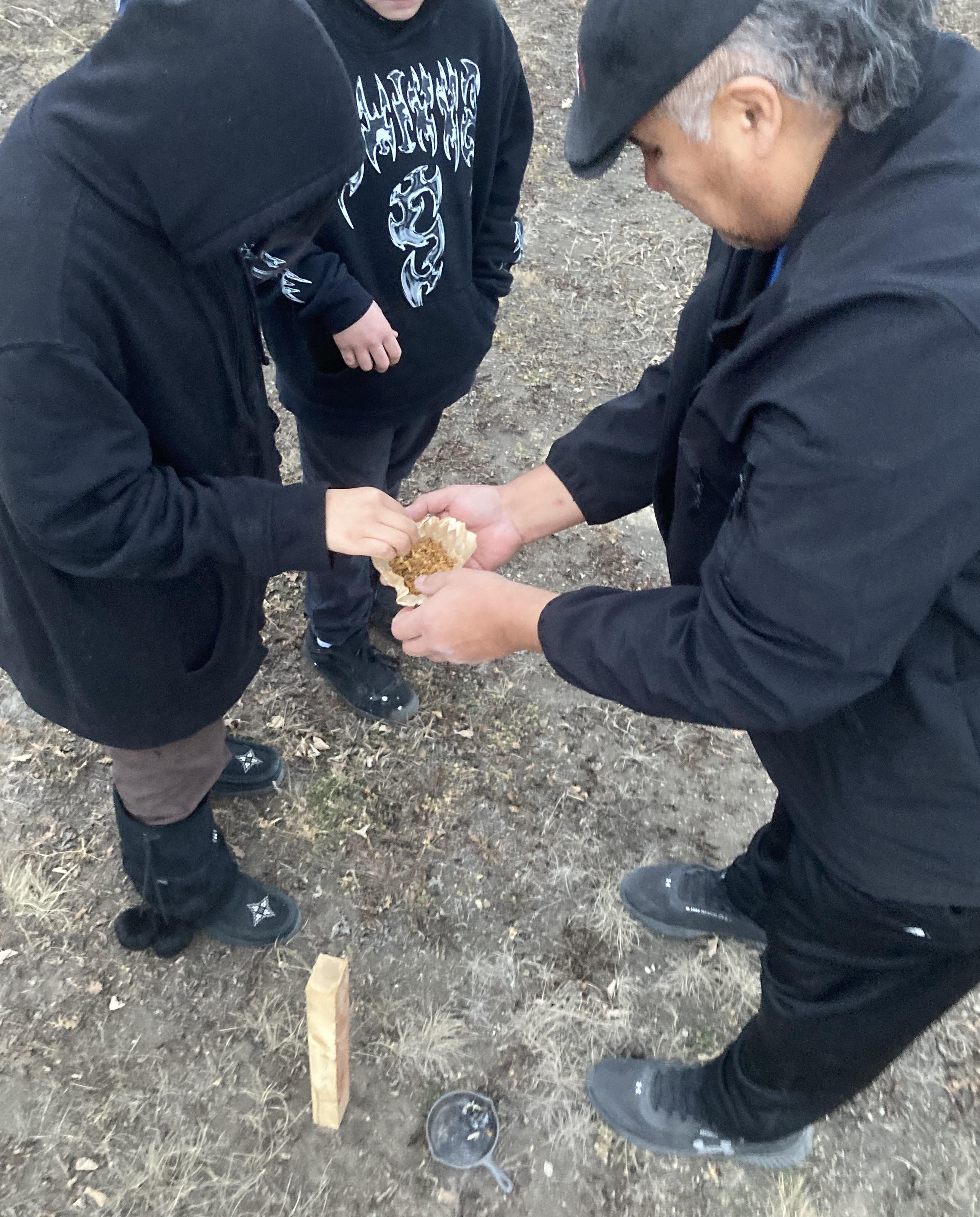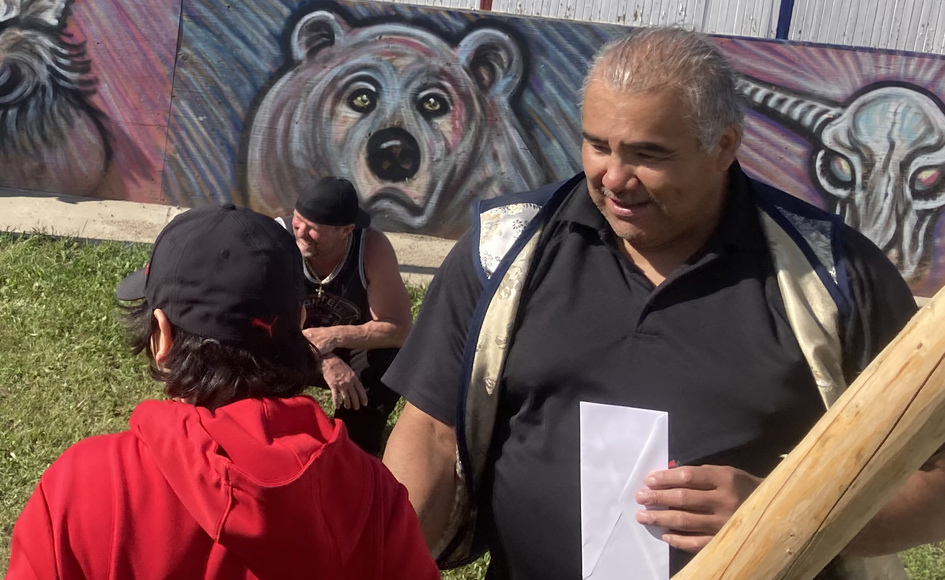Vernon Linklater is known by many names and titles – public school board trustee, champion boxer, survivor, Mushy, joke teller, and as many of us know him at Ranch Ehrlo - knowledge keeper.
Ranch Ehrlo Society is highlighting the local elders, helpers, and kohkums who are working with participants to provide cultural connection to our programs.

Vernon identifies as an Ojibwa or Anishinaabe, as well as Cree. He used to be from Couchiching First Nation but then transferred bands to Thunderchild First Nation in Saskatchewan. He currently lives in Saskatoon and has been a public school board trustee for 18 years and cultural advisor, alongside his work as a knowledge keeper. Vernon has been learning about Indigenous ways since childhood, watching his grandparents and parents.
Vernon said he had some challenges and issues in his youth but at the age of 22, he stopped drinking and has been sober since. In addition to his earlier battles with alcohol, Vernon had to deal with issues of abuse and racism, both of which he said affected his self-perception and identity. One of the ways he addressed the challenges he faced was through extracurricular activities like boxing.
Known in the boxing world as Angry Bear, he has won four Canadian Championships in the super heavyweight division, bronze medals in the World Cup and Commonwealth Games, and a 1990 Gold medal in the North American Indigenous Games. He was inducted into the Northwestern Ontario Sports Hall of Fame in 1996.
“It was then that I started to get my identity, to know who I am and where I come from,” Vernon explained. At the same time, Vernon’s father was becoming sober. Together they met with an elder and started to learn traditional ways of healing.
Vernon holds a diploma in General Arts & Science from the Confederation College of Applied Arts and Technology in Thunder Bay. He also credits a job working with young offenders to helping build the knowledge he has today.
“When I was young, I was always looking for someone that was brown like me, and I had nobody. There was no one to look up to so I decided that I was going to do it myself,” Vernon explained. “One of my teachings I have learned over the years is to live a good life - however you interpret that - and to be kind.”
Being referred to as an elder isn’t something that Vernon identifies with though he has been named that by members of the community. Vernon says he sees himself as a helper, but if others gift him the name of elder, he will honour that distinction.
Vernon has been working with the youth on the Corman Park campus outside of Saskatoon for the past two years. He uses his humour, and knowledge of sports to form bonds with the youth. He also taps into his past as a survivor to help identify the issues youth face.
“I know that it’s not a life to live to just be a survivor. You have to move on from that. You have to learn to be a champion and defend your title. If you are a dad, you do dad duties, and that is how you defend your title. These are some of the teachings I’m trying to share,” he explained.
“Identity is important,” he added. “I encourage them to learn more about who they are and where they come from and help them feel better about themselves.”

“They are gifts from the Creator and we have to treat them as such while at the same time, they have free will and can do as they want and that is where teachings apply. Once they learn them, they will never forget and that is what we are here to do,” he stated.
Part of Vernon’s time with the youth always involves sharing a meal. He believes that when you are eating, the body subconsciously puts more emphasis on the importance of the conversation and starts building the foundation for trust and acceptance.
“That is the time to talk to the kids and teach them about ceremonies and other teachings. From there we will smudge, and then have other conversations. I always use humour and do my best to keep up with what is funny out there,” Vernon said.
As Ranch Ehrlo continues its reconciliation journey, Vernon encourages the agency to keep learning the truth about Canadian history, to seek further knowledge about the treaties, and to continue engaging with Indigenous stakeholders.
“It is a good start, but I always ask people who is the highest-ranking Indigenous person in the company. They say one name and I’m like, why just one? This is where we need to change. It is a matter of awareness. We have to choose to understand, respect, and continue to change. That is what reconciliation is; it is a continuum.”


